The PHBS Center for Green Economy held the Ecological Civilization and Green Economy workshop with the support of Peking University Shenzhen Graduate School under the guidance of Chancellor Wu Yundong on 13th of December 2018 at the HSBC Business School building The guest speaker of the workshop was the renowned academic and Nobel Peace Prize recipient, Professor Mohan Munasinghe Professor Munasinghe’s speech to the 150 attendees touched on Ethics, Business and Global Sustainability Prof Munasinghe is a Sri Lankan economist who served as vice-chair of the Intergovernmental Panel on Climate Change and also shared the Nobel Peace Prize in 2007 with former Vice-President of the United States Al Gore He is the founder of the Munasinghe Institute for Development and has since become a distinguished guest professor at Peking University He has also co-authored over 90 books and several hundred journal articles and is one of the most prominent voices in the growing field of sustainable
Before the workshop began, Dean Wen Hai held a meeting with professor Munasinghe. At the meeting, they discussed future prospects regarding the growth of China and sustainable policies that can be initiated. The conversation then turned towards PHBS, and the pair discussed green policies that PHBS has implemented and the school’s future expectations and plans for sustainable growth.
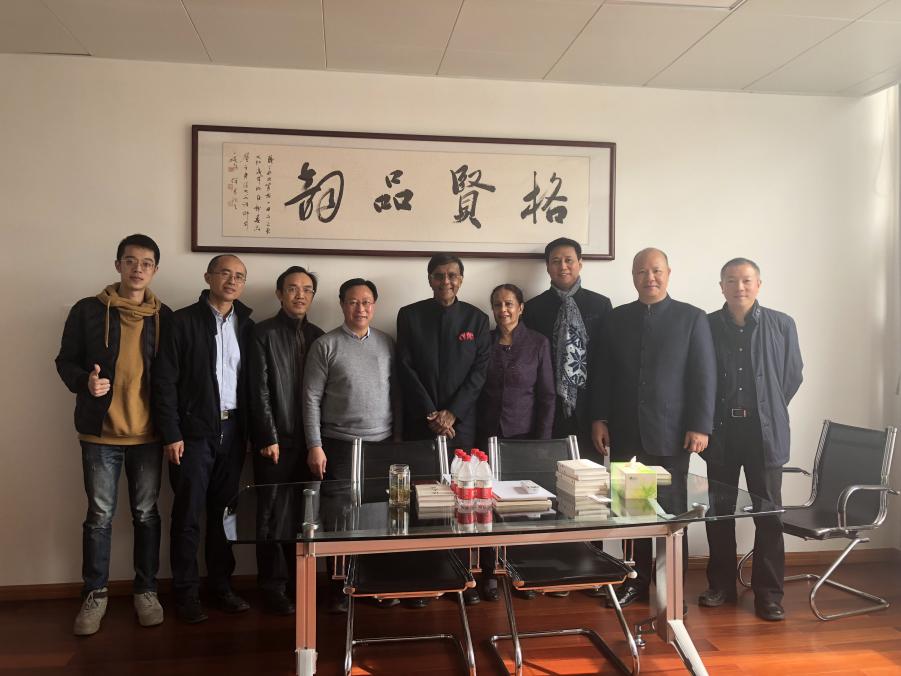 Peking University Shenzhen Graduate School Chancellor Wu Yundong host Prof. Mohan Munasinghe and his wife, Prof. Huapeng Qin, Prof. Qiyong Xu and Dr. Huanan Wu and Peng Cheng attend the meeting.
Peking University Shenzhen Graduate School Chancellor Wu Yundong host Prof. Mohan Munasinghe and his wife, Prof. Huapeng Qin, Prof. Qiyong Xu and Dr. Huanan Wu and Peng Cheng attend the meeting.
On Thursday 13
th December 2018, Professor Mohan Munasinghe travelled to Shenzhen University Town to present his theories on Sustainomics and how China can integrate this within the One Belt One Road Initiative. This was organized originally for the educational purpose of Professor Haifeng Huang’s China Studies class. However, after an outpouring of support throughout the University Town campus, it became the first collaborative event ever hosted by Tsinghua University and Peking University together.
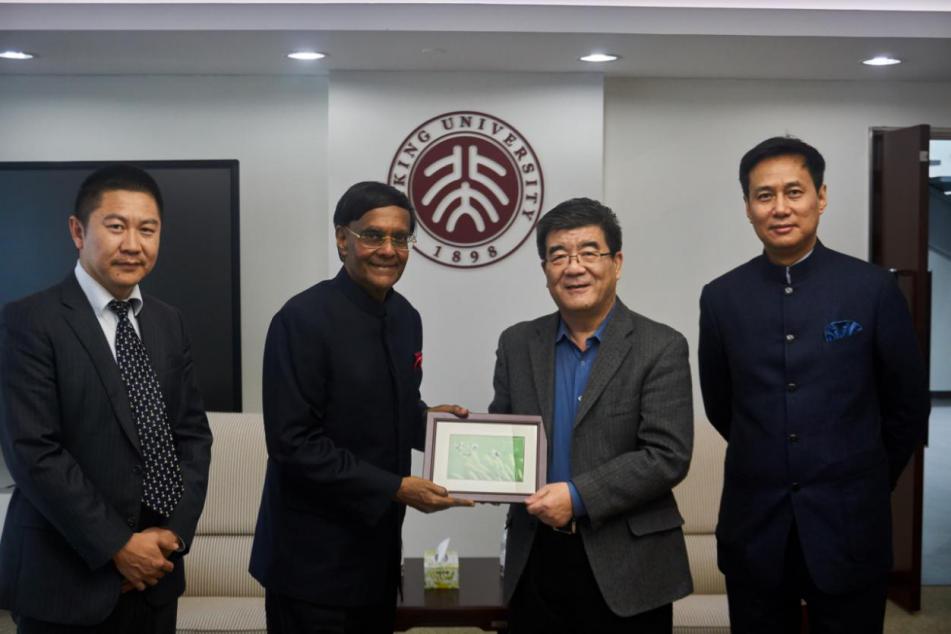
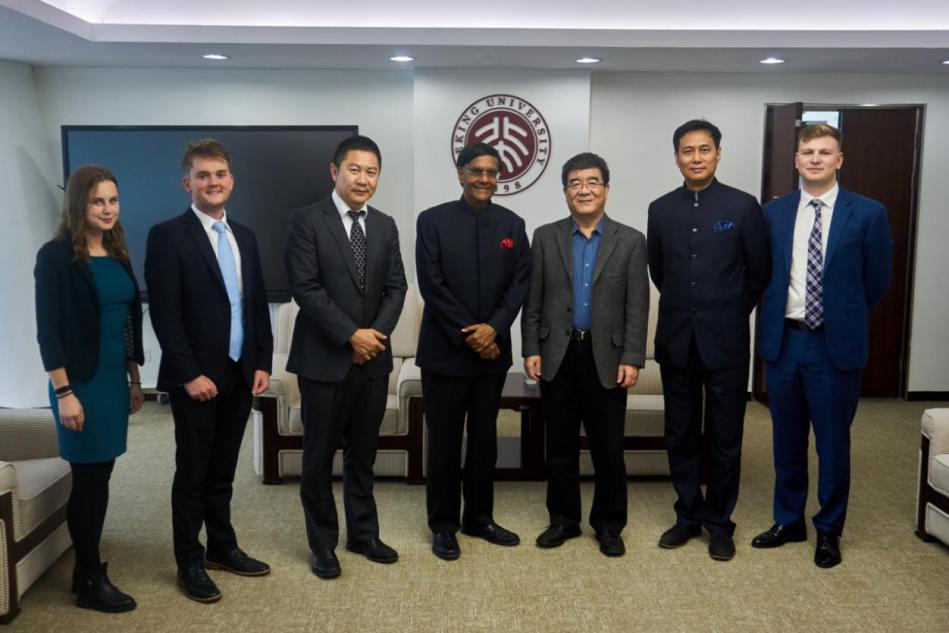 Peking University HSBC Business School Dean Wen Hai held a meeting with professor Mohan Munasinghe, Prof. Haifeng Huang, Prof. Deming Zhou and international students attend the meeting.
Peking University HSBC Business School Dean Wen Hai held a meeting with professor Mohan Munasinghe, Prof. Haifeng Huang, Prof. Deming Zhou and international students attend the meeting.
The event started with a warm welcome from Professor Huang, who spoke on behalf of the PHBS Center for Green Economy and China Studies Program. Then Lewis Daniels-Gardiner, class monitor of the 2018 China Studies class and Ekaterina Peter, president of the International Student Union gave a warm introduction and welcomed Vice Dean Xia Guangzhi (Tsinghua University Shenzhen Graduate School) to the stage for further introductions before the workshop got underway.
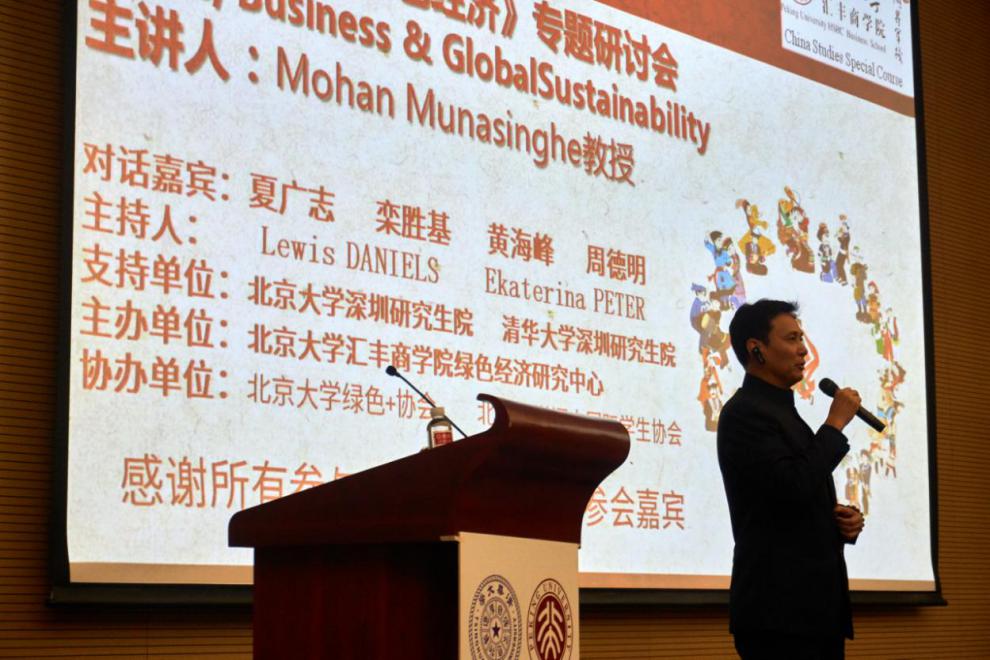 Professor Haifeng Huang Stands for PHBS Center for Green Economy and China Studies Program to deliver opening speech
Professor Haifeng Huang Stands for PHBS Center for Green Economy and China Studies Program to deliver opening speech
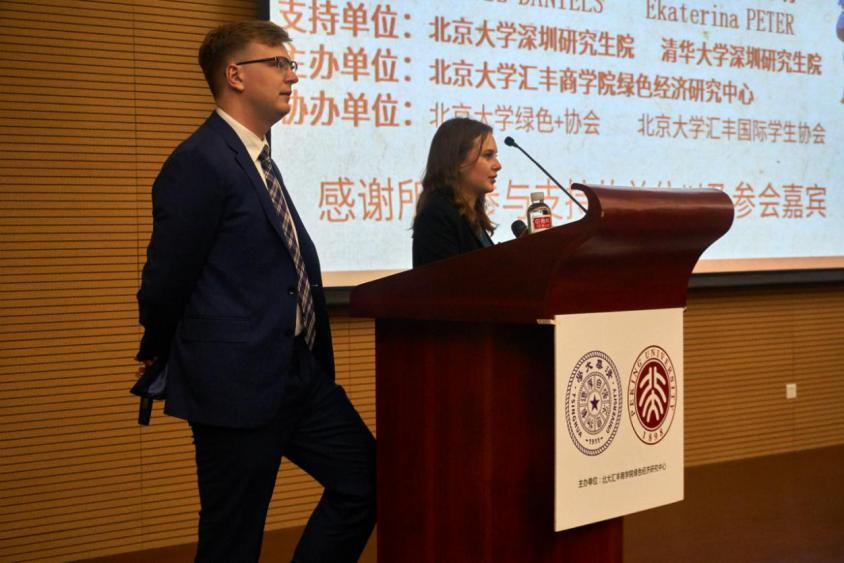
Lewis Daniels Gardiner and Ekaterina Peter moderate workshop together
Professor Munasinghe began by sketching a brief history of his career and detailing his major accomplishments to the excited crowd. Most notable was the founding of his principal theory of Sustainomics. This is the concept of “development which meets the needs of the present, without compromising the ability of future generations to meet their own needs.” It demands integrated and balanced economic, social, and environmental development throughout the world. This sustainable development triangle is the pinnacle opportunity cost throughout the modern world. This was also presented by Professor Munasinghe at the Global Climate Leadership Summit in early 2018. During his speech in Shenzhen, he elaborated on his efforts towards striving to build a Green Economy¸ which incorporates the environmental biodiversity of using natural resources to encourage economic growth and stability. This was expressed in conjunction with the seventeen Sustainable Development Goals that the UN has proposed, which include objectives like no poverty, zero hunger, quality education and gender equality
.
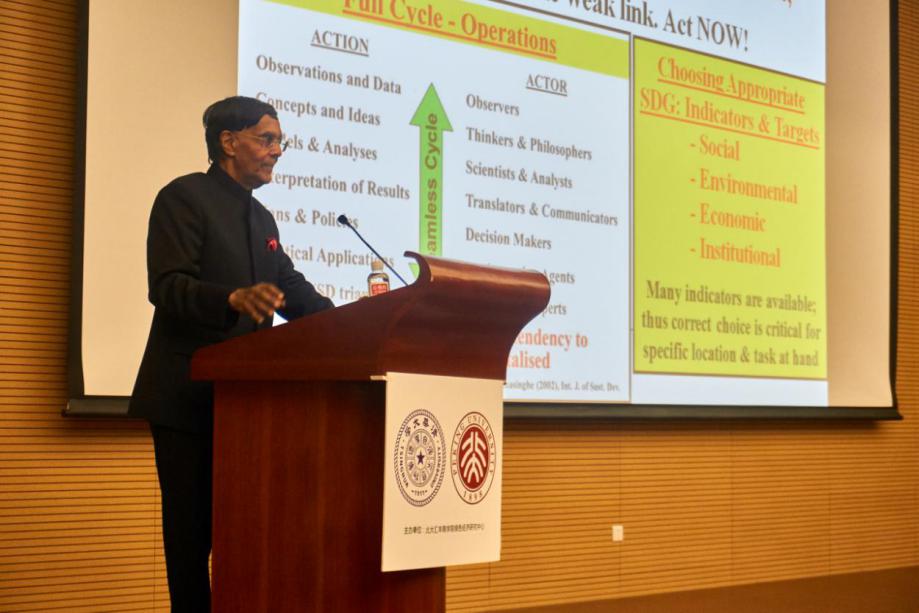 Professor Mohan Munasinghe
Professor Mohan MunasingheHis principles are being implemented throughout the world, and he has become a pioneer of replacing old, outdated unsustainable values with newer ethical practices in all levels of governance. Since becoming a visiting professor at Peking University in Beijing, Professor Munasinghe expressed how he has developed a fascination for examining the growth of modern China. This fresh interest has helped him improve his understanding of how economies can prosper at a sustainable rate for many years if they implement the right policies. He supports measures such as carbon reduction and renewable energy being at the forefront of consumer and producer development cycles.
Fascinating statistics of the global wealth disparity appeared to shock the audience, such as the fact that the richest 20% of the population account for more than 80% of the world’s consumption. This was just one of the many ways that Professor Munasinghe captivated the audience throughout his truly engaging workshop which ended with enthusiastic applause.
His speech was followed by a panel discussion with other distinguished guests, including Professor Luan Shengji, Professor Guangzhi Xia from Tsinghua University, Professor Haifeng Huang and Professor Zhou Deming. The discussion began with an exceptional question from Oren Giladi, exchange student from Israel, who asked for viewpoints regarding the consideration of overpopulation within China in the near future and whether the 17 Sustainable Development Goals (SDGs) will actually aggravate this phenomenon. This spurred a critical debate by all members who had varying viewpoints which was appreciated by the audience at the end of the workshop.
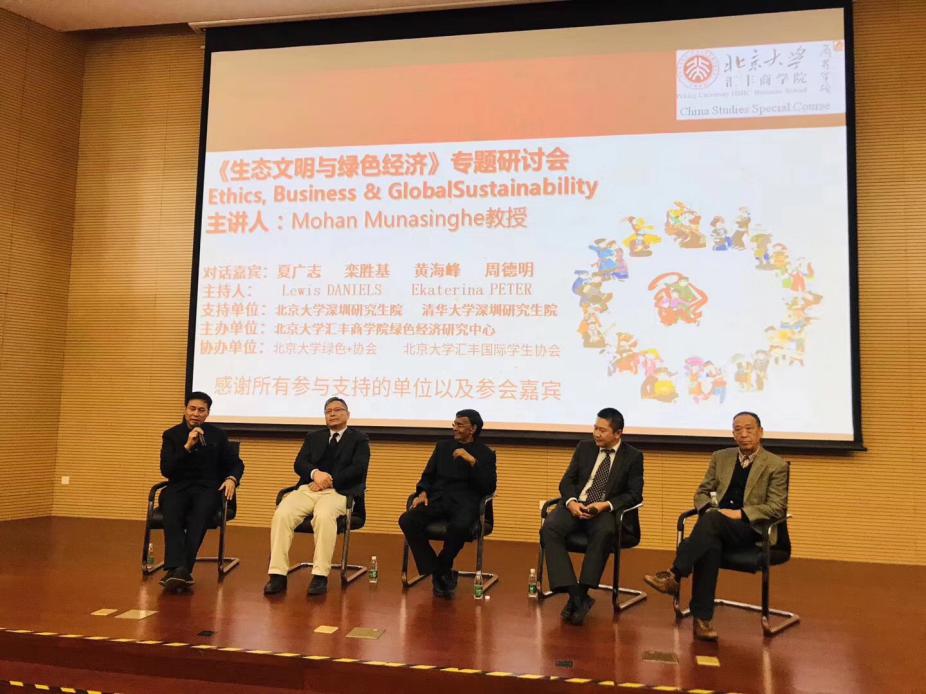 Panel discussion with Professor Mohan Munasinghe. Professor Haifeng Huang,Professor Guangzhi Xia,Professor Mohan Munasinghe, Professor Zhou Deming and Professor Luan Shengji (from left to right)
Panel discussion with Professor Mohan Munasinghe. Professor Haifeng Huang,Professor Guangzhi Xia,Professor Mohan Munasinghe, Professor Zhou Deming and Professor Luan Shengji (from left to right)
The closing remarks made by Lewis Daniels Gardiner, Ekaterina Peter and Yajie Peng were followed by parting gifts on behalf of PHBS students. Like all great events held within China, everyone posed for a final picture to mark the occasion and show their sincere gratitude to Professor Munasinghe and his group for taking the time to provide University Town with their presence. The workshop was truly a highlight of the academic year.
Written by George Gwynn-Thomas, edited by Haifeng Huang and Daniel Wobil, Photos by Nicolas Busch